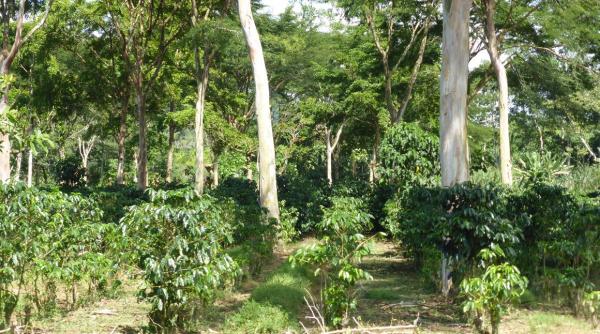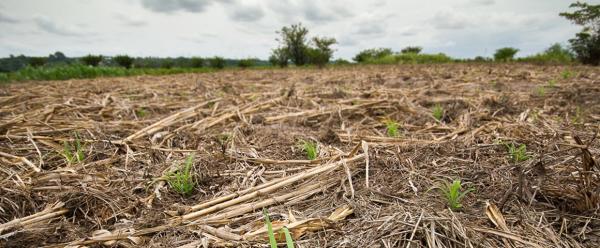Call to action 16 April 2025
- Home
- Press area
- Press releases
- COP15 desertification
COP15 desertification: agriculture as a buffer against the advance of the desert

Region of Ferlo, Senegal © S. Taugourdeau, CIRAD
Not as eminent as the COPs on climate and biodiversity, COP desertification gets far less political and media attention. Yet the questions it raises are just as critical, as pointed out by Alexandre Ickowicz and Eric Scopel, researchers at CIRAD and members of the Comité Scientifique Français de la Désertification (CSFD - French Scientific Committee on Desertification): “Areas affected by desertification face all of the issues covered by the three Rio conventions*. The desert is advancing in arid zones because of the degradation of resources, which is a combination of climate aspects and the degradation of biodiversity and soils, caused by human activity”.
CIRAD’s scientists thus note a recent shift in the policy agenda of the Convention on Desertification, with the addition of the concept of “land degradation”. “Policymakers have become aware that there is a gradient between arid and non-arid areas”, they explain. “It is no longer a matter of simply establishing a barrier of trees between two well defined areas”.
Combining crop and livestock production to stabilise the advance of the desert
Broadening the debate around land degradation has placed agricultural issues at the heart of negotiations. Currently considered as the main cause of soil degradation, agriculture can also be a leading source of solutions, “as long as agroecological principles are adopted”, say the scientists.
By way of example, the researchers cite their work on pastoral systems in the Sahel, which have been in equilibrium with their environment for thousands of years, despite the region being hostile to human activity: “In regions where rainfall is less than 200 mm per year, pastoralism is the only viable form of agriculture”, says Alexandre Ickowicz. “Crops require at least 200 to 300 mm of rainfall per year, unless they rely on irrigation, which uses unsustainable fossil reserves and often involves expensive technologies”.
Contrary to popular belief, these pastoral systems can actually be carbon neutral. Because of livestock movements, they also play a role in transferring the fertility required by soils and crops to the periphery of arid areas, while reducing the need for chemical fertilisers. “By associating crops and livestock, plant production is stabilised in these semi-arid areas”, says Eric Scopel. “Biodiversity is reintroduced and a new balance is achieved, giving back control over the desert”. From a factor of degradation, agriculture thus becomes a buffer to combat the advance of the desert.
The Great Green Wall: putting local populations back at the heart of the project
One of the key issues of the negotiations at COP15 desertification is the new phase of the Great Green Wall. A colossal project launched in 2007, the first phase largely ignored the needs of local populations, resulting in failure 15 years later. In January 2021, the members of the One Planet Summit launched a second phase of the Great Green Wall, known as the GGW Accelerator, this time based on the broad participation of local populations.
According to Alexandre Ickowicz, this is an opportunity to stimulate and support agropastoral systems: “Local livestock production is strongly dependent on the use of trees. Reintroducing a higher level of biodiversity would improve fodder production, for example, provided local populations are involved in these introduction and management processes”.
The two scientists are present in Abidjan at the CSFD stand, and will lead debates on agroecology, pastoralism and the Great Green Wall. See the programme of CIRAD events here.
CIRAD's position paper on the Great Green Wall:
*The United Nations Conference on Environment and Development of 1992, also known as the Rio Earth Summit, gave rise to three international conventions: the United Nations Framework Convention on Climate Change (UNFCCC), the Convention on Biological Diversity (CBD), and the United Nations Convention to Combat Desertification (UNCCD).



























